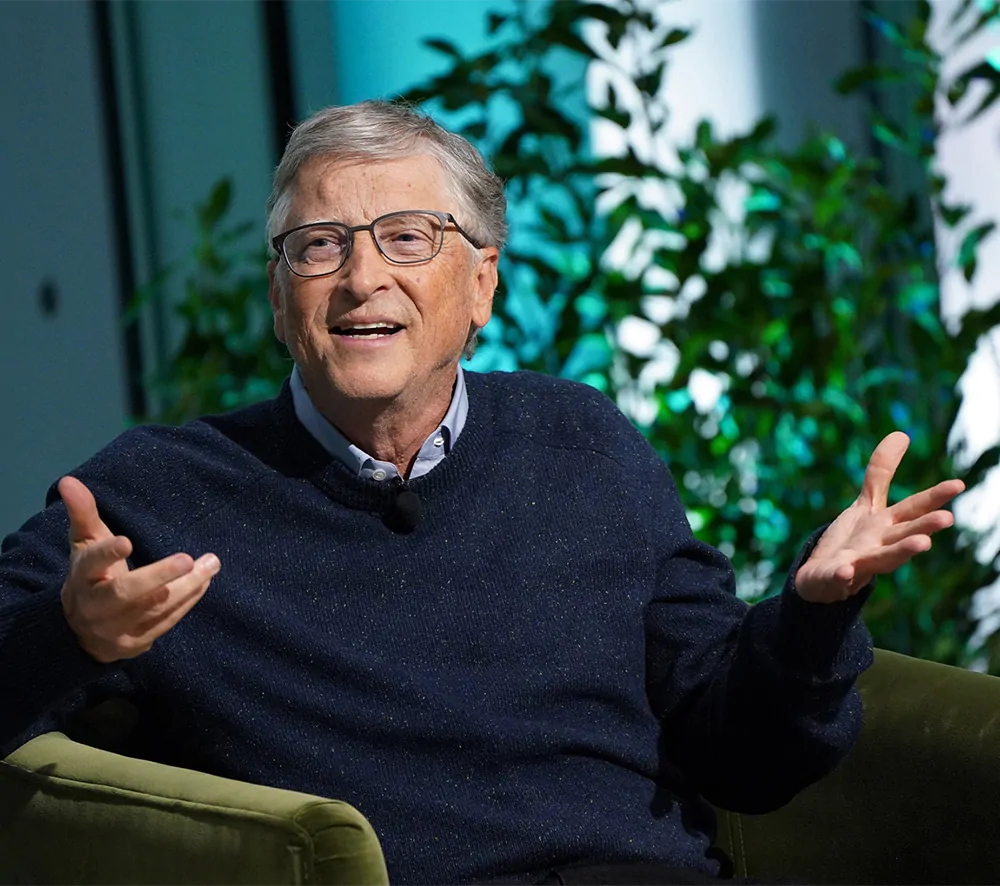A visionary is someone who possesses the ability to think creatively and imaginatively about the future, particularly in terms of new ideas, innovations, or trends.
These people often have a clear picture of what the future could be.
Not only that, these people are also capable of anticipating and influencing changes in various fields, and if the visionaries are also business people, they would also play crucial role in driving innovations and pushing the boundaries of what is possible.
Bill Gates, for example, is considered a visionary because of his forward-thinking ideas and contributions to the development of personal computing.
In the context of business and technology, Gates is known for being a person who can foresee trends, developments, or opportunities before they become widely recognized.
As the man behind the revolution of personal computers, he played a crucial role in driving innovation and pushing the boundaries of what is possible.
But when it comes to the internet, he somehow failed to predict what the technology would become.

The co-founder and former CEO of Microsoft, is a world-class billionaire and also a world-class philanthropist.
His foresight and understanding of technology's potential have played a significant role in shaping the modern digital era.
Gates envisioned the widespread use of the internet, and knew that it would become an integral part of people's lives, impacting communication, business, and daily activities.
Gates predicted the rise of online content consumption, e-commerce, and the transformation of traditional industries.
The Microsoft founder said that as the internet was taking off, he believed the internet would help drive people to search up information and responsibly empower themselves, giving an example of how someone could learn about a lawsuit by looking up what both the plaintiff and defendant claimed without relying on a news article.
And if someone had a question about a topic in science, they could "go read the articles and see everything about them," the billionaire said.
Entrepreneurs like him expected the internet to drive the "Socratic debate," he added.
"I will admit, the people who drove the digital revolution, including myself, really thought that the world would get more rational," Gates said, believing that the internet would "make the world so factual."
In other words, he imagined that it would make the world more rational, not the polar opposite.
What it turned out, the internet has become a tool for disinformation and "crazy ideas."
According to him, the internet is now used by "crazy people" to find each other, he said.
"There were a lot of them out there. They were just not finding each other," Gates said. "And now, with digital tools, said: 'Oh you think that crazy thing? Me too! Let's get together and have a critical mass of crazy people. Let's, you know, call ourselves QAnon.'"
Now that Gates is a lot older than his younger eager self, he is also wiser.
He hoped that younger generations would be able creative enough to solve the disinformation issues.
And speaking about the implications of AI on the world, Gates reflected this on his own predictions during the original digital revolution.
The billionaire said he's open to AI being regulated, and that anyone who fights against AI regulation just sounds "stupid."
In the end, just like the PC revolution he helped create, and the internet that has become part of Microsoft, Gates also feels positive about AI, saying it could relieve labor shortages and make the world richer.
"I'm more optimistic about AI because of the near-term benefits," he said.